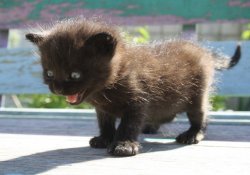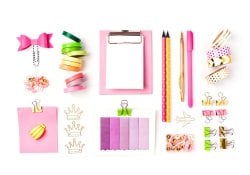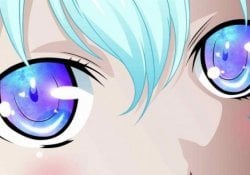In this article, we are going to study the kanji 家 and get to know some words. This kanji can mean home, family, professional, specialist, performance and other related words.
The Kanji 家 is ranked 133rd on the list of most used kanji in newspapers. It is considered a JLPT Level kanji N4.
- Kun yomi: いえ, や, うち
- On yomi: カ (ka), ケ (ke)
- In names: り, え, く, つ か, べ
- Radical: 宀 (roof)
- traits: 10
This kanji has few readings and is easy to memorize.
Índice de Conteúdo
うち VS いえ
UCHI (うち) or IE (いえ) are 2 different words that have the same kanji and both mean home. いえ is used to refer to any physical house, while うち is used to refer to your own home and family. うち is used to mean "the place I live" instead of just the physical structure.
Since they both have the same Kanji, how do I know which word is in a text? First you'll know from the context, but most of the time うち will start the sentence while いえ is easily found in the middle of sentences.
An interesting fact is that うち is cognate (or familiar) with 内 (uchi) which means inside, between, among and home.
As IE and UCHI are Japanese readings (KUN), it is less common to find them in compound words with other kanji, but there are some exceptions. (How to know if the reading is ON or KUN).
Below we will see some words that have the readings IE and UCHI but are composed of kanji:
- 家出 - iede - Run away from home
- 家路 - ieji - Way home
- 家々- ieie - Every house, dwellings
- 家筋 - iesuji - Lineage, pedigree, family line
- 家中 uchiju / iieju – the whole family; all (members) of the family
We note that although kanji compound words have a KUN reading, they are just word unions, as was the case with 家 + 中.
In some words, the うち can end up hiding the "U" and leaving only "CHI". Example: 俺んち - orenchi - my house.
カ -KA
The KA reading of the kanji 家 often ends words as a suffix that indicates an expert, professional or a person who does a certain action in a certain area. See some examples below:
- 作家 - sakka - writer, author, novelist, artist
- 農家 - nouka - Farmer
- 実業家 - jitsugyōka - Businessman
- 画家 - gaka - Painter, artist
- 漫画家 - mangaka - Manga artist, cartoonist
- 生家 - iseka - House where one was born
- 資本家 - shihonka - Capitalist, financier
- 発明家 - hatsumei-ka - Inventor
- 宗教家 - shūkyōga - Religious
- 政治家 - seijika - politician
- 作曲家 - sakkyokka - Composer
- 建築家 - kenchikka - Architect
- 歴史家 - rekishiya - Historian
The KA reading can also initiate words like:
- 家族 - kazoku - Family
- 家庭 - katei - House, family, domestic
- 家具 - kagu - Furniture
- 家事 - kaji - Housework
- 家畜 - kachiku - Domestic animals, livestock
- 家計 - kakei - Home economics, family budget
- 家宅 - Kataku - domicile, place, house
Most words that begin and end with kanji 家 have the reading KA. Most of these words refer to something related to or within a home, family or house.
ケ- KE
KE can be a suffix representing a family relationship, a group, etc. It can indicate the home of a family (example: 徳川家 – Tokugawa ke – Tokugawa Family).
See the examples below to get an idea of the meaning and feeling that words ending in "KE" say:
- 摂家 - sekke - Regents, advisers;
- 裏千家 - urasenke - One of the leading schools of tea ceremony
- 両家 - ryōke - Both families
- 王家 - ouke - Royal family
- 分家 - bunke - Branch family, branch
- 後家 - goke - Widow
- 良家 - ryōke - Good family; respectable family; decent family
The KE reading can also start words like:
- 家来 - kerai - Retainer, entourage, servant
The article is still halfway through, but we recommend also reading:
や - YA
Some words ending with the kanji 家 will be pronounced や as a suffix. This suffix is used to refer to a house of something, some place, where business is conducted and to people who have done certain action.
Remembering that this suffix is not used in any random word, but is present in certain words. Another kanji that has a similar function and ends with YA is 屋 which means house, roof, shop, seller. So some words can both be written with 屋 or 家.
Some words may simply end with YA and have no meaning other than "home" or "family".
Below are some words ending in や:
- 大屋 / 大家 - ooya - Owner, landlord
- 貸家 - shikaya - House for rent (借家 - yakushiya)
- 我が家 - wagaya - Your house; a family home; the family
- 空き家 - akiya - Empty house; unoccupied house
- 長屋 - ganaya - Residential building
- 母屋 - omoya - Central room, Main building
- 一つ家 - hitsuya - A house; the same house
The YA reader can also start words like:
- 家賃 - yachin - rent
- 家主 - yanushi - landlord, owner of the house
There is also the word 家鴨 - ahiru - Domestic duck - which has a different reading from the others, as if the 家 were hidden.
Examples of use
Now let's see in practice some sentences that have words with kanji 家:
- 僕は家にいるよ。 - Boku wa ie ni iru yo - I'll stay at home;
- 彼らは、画家だ - Karera wa, gakada - They are artists;
- 彼は家にいるか - Kare wa ie ni iru ka - Is he home?
- わが家にまさる所なし。Wagaya ni masaru tokoro nashi. - There is no place like home;
- そ の家に火がついた。 - So no ie ni hi ga tsuita - He caught fire in his house;
You can follow more sentences in English on the jisho website by clicking here.
I hope this article has helped you to learn more about the kanji 家. Remember that the best way to memorize kanji is to read as much content as possible.







